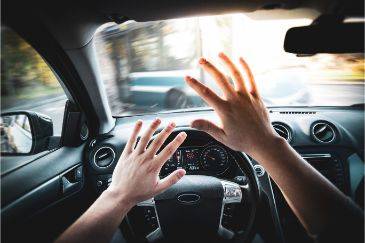Ridesharing has become increasingly popular over the years, with companies like Uber and Lyft leading the way. While ridesharing offers convenience and flexibility, it also raises questions about liability in the event of an accident. In Florida, determining liability in a rideshare accident can be complex. Let’s take a closer look at who is liable in a rideshare accident in Florida.
Florida Rideshare Laws
In 2017, Florida passed a law regulating ridesharing companies like Uber and Lyft. The law requires these companies to carry insurance that provides coverage for accidents involving their drivers. Specifically, the law requires:
- $50,000 for death and bodily injury per person
- $100,000 for death and bodily injury per accident
- $25,000 for property damage
When the driver is logged into the app but has not yet accepted a ride request, the law requires a lower amount of coverage:
- $50,000 for death and bodily injury per person
- $100,000 for death and bodily injury per accident
- $25,000 for property damage
- When the driver is not logged into the app, their personal insurance policy is responsible for covering any accidents.
Determining Liability in a Rideshare Accident
Liability in a rideshare accident is often determined by who is at fault. If the rideshare driver is at fault, then the driver and their insurance policy will be responsible for any damages. If the other driver is at fault, then their insurance policy will be responsible for the damages.
However, in some cases, determining liability may not be straightforward. For example, if the rideshare driver was logged into the app but did not have a passenger in the car, there may be questions about whether the rideshare company’s insurance policy applies. Similarly, if the rideshare driver was using their personal vehicle instead of a company-provided vehicle, their personal insurance policy may be responsible for the damages.
When determining liability in a rideshare accident, it’s important to consult with an experienced personal injury attorney who can help navigate the complex legal issues involved.
It’s also important to note that rideshare companies like Uber and Lyft have policies in place to protect their drivers and passengers in the event of an accident. For example, both companies provide insurance coverage for their drivers that go above and beyond the state’s minimum requirements. However, the details of these policies can vary depending on the specific circumstances of the accident.
In addition to insurance coverage, rideshare companies also have dispute-resolution processes in place to handle accident claims. These processes typically involve a third-party mediator who works to resolve disputes between the parties involved in the accident. If the parties are unable to reach a resolution through the mediation process, they may need to pursue legal action to recover damages.
As a personal injury law firm with experience handling rideshare accident cases in Florida, we at Serrano Law can help with determining liability in a rideshare accident case. Our team can conduct a thorough investigation of the accident, review the applicable insurance policies, negotiate with insurance companies, and represent you in court if necessary. We understand that rideshare accident cases can be complex, which is why we are here to provide guidance and support throughout the entire process. If you’ve been involved in a rideshare accident in Florida, we encourage you to contact Serrano Law to schedule a consultation and learn more about how we can help you.
